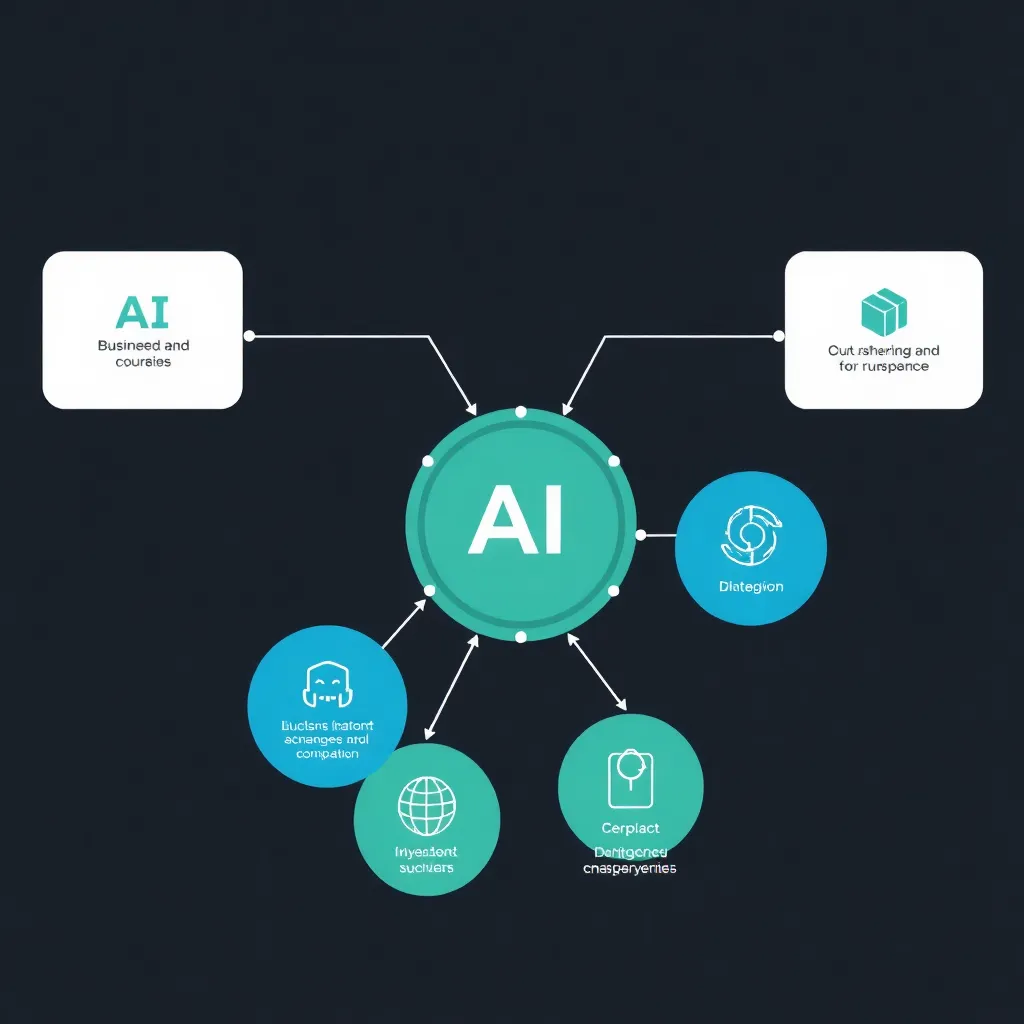The rise of AI-powered tools and platforms is transforming the freelancing landscape, enabling independent workers to automate routine tasks, streamline workflows, and focus on high-value services. According to a report by Upwork, 63% of companies are using AI and machine learning to improve their operations, and freelancers are no exception. By leveraging AI-driven tools, freelancers can increase their productivity, efficiency, and competitiveness in the market.
The impact of AI on freelancing is multifaceted. On one hand, AI-powered platforms are making it easier for clients to find and hire freelancers, reducing the need for intermediaries and increasing transparency in the hiring process. On the other hand, AI-driven automation is also enabling freelancers to offer more specialized and high-value services, such as data analysis, content creation, and strategy development.
Moreover, AI is also changing the way freelancers interact with clients and manage their projects. AI-powered communication tools, such as chatbots and virtual assistants, are enabling freelancers to provide 24/7 customer support, respond to client queries, and manage project workflows more efficiently. Additionally, AI-driven project management tools are helping freelancers to track their progress, collaborate with team members, and deliver high-quality results.
As AI continues to evolve, it’s likely to have a profound impact on the freelancing industry, enabling independent workers to work more efficiently, effectively, and autonomously. However, it also raises important questions about the future of work, skills, and training, and the need for freelancers to develop new skills and adapt to changing market demands.
AI-Powered Matching Platforms
The rise of AI-powered matching platforms is revolutionizing the way freelancers find work and clients find talent. By leveraging machine learning algorithms, these platforms can identify the most suitable freelancers for a particular project, taking into account their skills, experience, and work history. This approach ensures that clients are matched with freelancers who possess the exact skills and expertise required for their project, leading to more successful collaborations and higher quality outcomes.
One of the key benefits of AI-powered matching platforms is their ability to provide personalized job recommendations to freelancers. By analyzing a freelancer’s strengths, weaknesses, and past performance, these platforms can suggest jobs that are tailored to their unique skills and interests. This not only increases the chances of successful collaborations but also helps freelancers to focus on projects that they are passionate about and excel in.
According to a report by Gartner, by 2023, 40% of organizational transformation efforts will be driven by AI. The adoption of AI-powered matching platforms is a testament to this trend, as more businesses turn to technology to streamline their hiring processes and improve collaboration outcomes.

Automated Task Management
One of the most significant benefits of AI in task management for freelancers is the ability to automate repetitive and administrative tasks. According to a report by Upwork, freelancers spend approximately 36% of their workweek on non-billable tasks, which can be a significant drain on productivity and earnings. By automating tasks such as invoicing, time tracking, and project management, freelancers can reclaim this time and focus on high-value tasks that drive creativity and revenue.
AI-powered tools can also help freelancers streamline their workflow and improve organization. For instance, AI-driven project management tools can automatically assign tasks, set deadlines, and track progress, ensuring that projects are completed efficiently and effectively. This enables freelancers to deliver high-quality work to clients while minimizing the risk of delays and errors.
Moreover, AI can help freelancers better manage their time and prioritize tasks. By analyzing a freelancer’s work patterns and habits, AI-powered tools can identify areas of inefficiency and provide personalized recommendations for improvement. This can lead to increased productivity, reduced stress, and a better work-life balance.
Enhanced Collaboration Tools
The integration of AI-driven collaboration tools has revolutionized the way freelancers and clients work together. By leveraging natural language processing, these tools can facilitate seamless communication, eliminating language barriers and ensuring that all parties are on the same page. This results in reduced misunderstandings, increased productivity, and improved overall project outcomes.
One of the key benefits of AI-driven collaboration tools is their ability to enable real-time feedback. This allows clients to provide instant input and guidance, ensuring that projects stay on track and meet their requirements. Freelancers, in turn, can receive timely feedback, making adjustments and improvements as needed. This collaborative approach leads to higher quality deliverables and increased client satisfaction.
A further advantage of AI-driven collaboration tools is their capacity to provide personalized project recommendations. By analyzing project data and freelancer expertise, these tools can suggest the most suitable freelancers for specific projects, ensuring that clients receive the best possible talent for their needs. This not only streamlines the project allocation process but also leads to better project outcomes and increased freelancer utilization.
As the gig economy continues to grow, the importance of effective collaboration tools will only increase. According to a report by Upwork, 63% of companies use freelancers, and this number is expected to rise. By embracing AI-driven collaboration tools, freelancers and clients can stay ahead of the curve, driving efficiency, productivity, and innovation in their projects.

New Opportunities for Specialization
The increasing adoption of artificial intelligence (AI) across various industries is opening up new avenues for freelancers to specialize in AI-related services. One such opportunity lies in creating high-quality AI training data, which is essential for developing accurate and reliable AI models. Freelancers can offer their services to companies that require large amounts of annotated data to train their AI systems, thereby capitalizing on the growing demand for AI expertise.
Another area of specialization for freelancers is AI model development. With the rise of AI, companies are looking for experts who can design and develop custom AI models that cater to their specific business needs. Freelancers with expertise in machine learning and deep learning can offer their services to develop AI models that can help businesses automate tasks, gain insights, and improve decision-making.
In addition to AI training data creation and model development, freelancers can also specialize in AI ethics consulting. As AI systems become more pervasive, there is a growing need to ensure that they are developed and deployed in an ethical and responsible manner. Freelancers with expertise in AI ethics can help companies navigate the complex landscape of AI ethics and develop strategies to mitigate potential risks and biases.
According to a report by Upwork, the demand for AI-related skills is expected to continue growing in the coming years. Freelancers who specialize in AI-related services can position themselves for success by developing their skills in areas such as machine learning, natural language processing, and computer vision. By doing so, they can capitalize on the growing demand for AI expertise and differentiate themselves in a competitive market.
Conclusion: Embracing the Future of Freelancing
The rise of AI is revolutionizing the freelancing industry, and it’s essential for independent workers to evolve with the changing landscape. By leveraging AI-driven tools and services, freelancers can streamline their workflow, reduce administrative tasks, and focus on high-value activities that drive growth and revenue. According to a report by Upwork, 63% of companies use freelancers, and AI can help freelancers capitalize on this growing demand.
AI-powered tools can automate tasks such as invoicing, time tracking, and project management, freeing up freelancers to focus on delivering high-quality work and building strong relationships with clients. Moreover, AI-driven platforms can help freelancers identify new opportunities, negotiate better rates, and optimize their portfolios for maximum visibility. By embracing AI, freelancers can increase their earning potential and stay competitive in a rapidly changing market.
The future of freelancing is undoubtedly tied to the rise of AI, and those who adapt quickly will reap the benefits. As AI continues to transform the industry, freelancers who harness its power will thrive, while those who resist may struggle to keep up. By staying ahead of the curve, freelancers can unlock new opportunities, drive growth, and build a successful and sustainable career in the gig economy.

